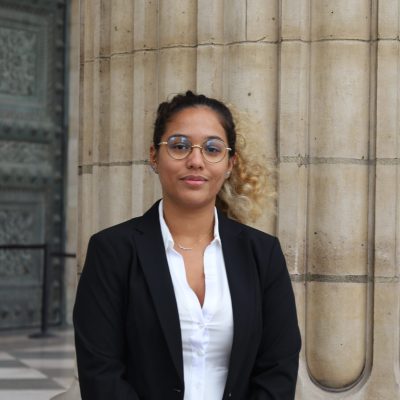Caroline LAI KANE CHEONG

Titre de la thèse : Le droit exclusif des artistes dans le marché unique numérique
Comment adapter le droit à un monde numérique, sans sacrifier ni la création ni l’accès à la culture ? Le projet tend à analyser la manière dont le droit d’auteur et les droits voisins – par le prisme du droit exclusif – sont transformés, voire précarisés, par les mutations contemporaines du numérique et des plateformes.
Le droit exclusif, conférant aux artistes un monopole d’autoriser ou d’interdire l’exploitation de leurs œuvres, constituait historiquement le cœur du droit d’auteur. Toutefois, ce modèle classique est bouleversé. Les plateformes, comme YouTube ou Spotify, déterminent leurs propres règles au travers d’algorithmes de filtrage et de conditions générales d’utilisation aux dépens des artistes. Entre remix, mèmes, et, plus récemment, contenus générés par l’IA, la création est devenue participative. Si ces pratiques dynamisent la culture, elles fragilisent le contrôle des artistes sur leurs œuvres et impactent leur juste rémunération.
Cette recherche ambitionne de repenser le droit exclusif afin qu’il demeure un outil vivant, capable de concilier trois impératifs : protéger les artistes, garantir la diversité culturelle et accompagner l’innovation. Elle propose une approche pluridisciplinaire, croisant analyse juridique, comparaison internationale et étude des pratiques contractuelles, enrichie de données empiriques. L’enjeu est de trouver un équilibre entre création, liberté d’usage et justice économique.
Thesis title : The Exclusive Right of Artists in the Digital Single Market
How can the law be adapted to a digital world without sacrificing either creation or access to culture? This project seeks to examine how copyright and neighbouring rights, through the lens of the exclusive right, are being transformed, or weakened, by the dynamics of digital technologies and platforms.
The exclusive right, granting artists the monopoly to authorize or prohibit the use of their works, has historically constituted the core of copyright law. Yet this classical model is now unsettled. Platforms such as YouTube and Spotify increasingly dictate their own rules, relying on filtering algorithms and contractual terms that often operate to the detriment of artists. In parallel, creation itself has shifted: remixes, memes and, more recently, AI-generated works exemplify a participatory culture. While such practices invigorate cultural exchange, they simultaneously undermine the artist’s control over their works and jeopardise fair remuneration.
This research aims to reconceptualize the exclusive right so that it remains a living instrument capable of reconciling three imperatives: protecting artists, safeguarding cultural diversity, and embracing innovation. It advances a multidisciplinary approach, combining legal analysis, comparative perspectives, and the study of contractual practices, enriched by empirical insights. The overarching challenge is to articulate a balance between creation, freedom of use and economic justice.
Contactez-nous !
Campus de Villetaneuse
@univ_SPN
